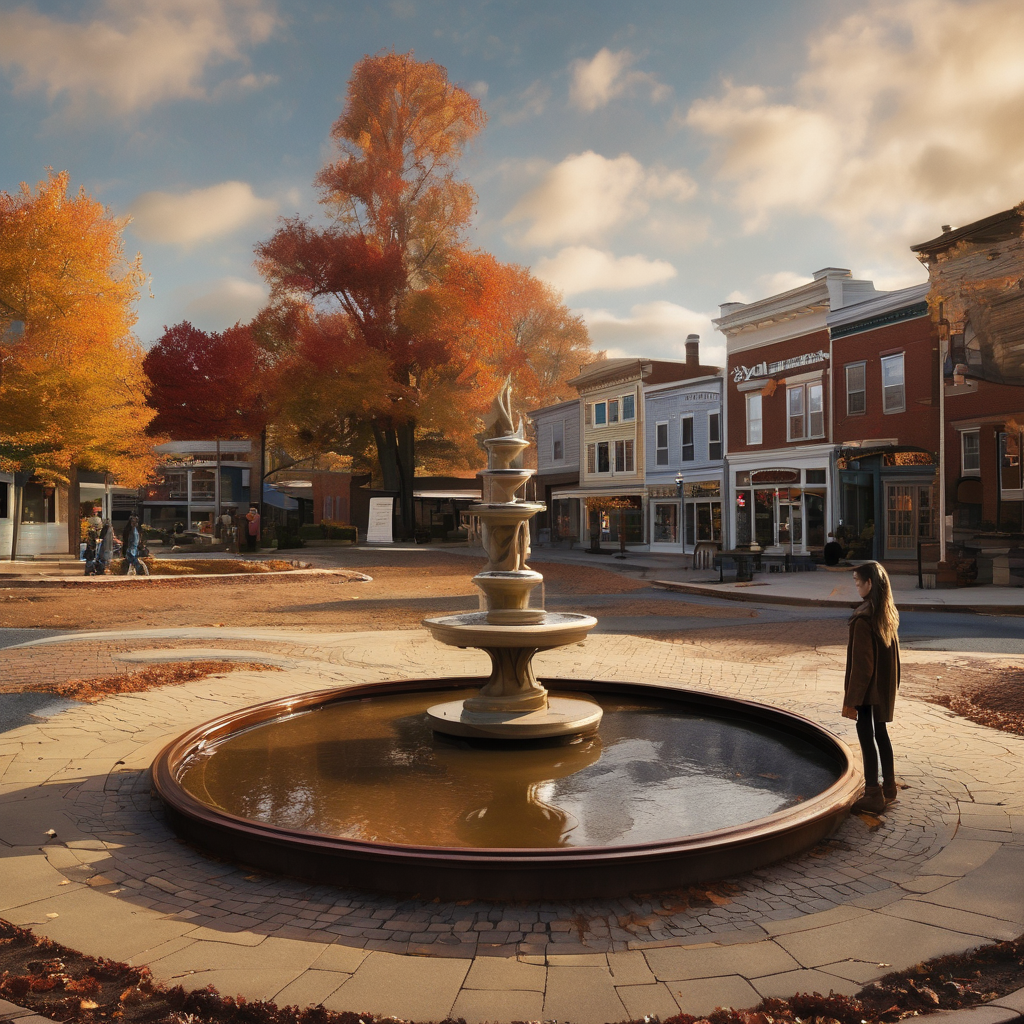Every afternoon at 3:47, the town of Millbrook held its breath. Not intentionally, mind you—most residents had no idea they were participating in this daily ritual of suspended animation. But Clara knew. She’d been watching from her grandmother’s attic window for three weeks now, timing it with the old brass pocket watch that had belonged to her great-grandfather.
The phenomenon lasted exactly thirteen minutes. During this time, the world outside moved like honey poured from a jar. Mrs. Henderson’s tabby cat would freeze mid-leap from fence post to garbage can. The mailman’s stride would stretch into an eternal step. Even the autumn leaves seemed to hang in the air, defying gravity with their slow-motion pirouettes.
Clara had first noticed it the day after her grandmother’s funeral, when grief made every moment feel elastic anyway. She’d been sorting through decades of accumulated memories in the cramped attic space—vintage jewelry boxes, handwritten recipes on index cards, photo albums with corners soft from handling. That’s when she’d spotted the journal wedged behind a trunk of winter coats.
The leather-bound book contained her grandmother’s spidery handwriting, documenting forty-seven years of observations about “the daily pause.” According to the entries, it had started in 1976, the same year the old clockmaker’s shop on Main Street had burned down. Mr. Kowalski, the clockmaker, had died in the fire along with hundreds of timepieces—grandfather clocks, pocket watches, delicate Swiss mechanisms that had kept the town’s rhythm for decades.
Clara’s grandmother theorized that time itself had been wounded that day, creating a small tear in the fabric of hours and minutes. The vanishing hour, as she called it, was time trying to heal itself, gathering the scattered seconds like a body mending broken bones.
But today felt different. Clara pressed her nose against the dusty window glass and watched the street below. The usual slowness was there—the flag outside the post office barely rippling, sparrows caught mid-flight like mobile sculptures—but something else was happening too. People were disappearing.
Not all at once, but one by one, like stars winking out at dawn. First, old Mr. Chen vanished from his porch swing, leaving only the gentle sway of an empty seat. Then the woman walking her golden retriever simply wasn’t there anymore, though the dog continued its leisurely pace, leash trailing behind like a question mark.
Clara fumbled for her great-grandfather’s watch. 3:52. Still eight minutes left in the vanishing hour.
She raced downstairs and burst through the front door, her sneakers slapping against the sidewalk. The air felt thick, almost breathable syrup that she had to push through with effort. Each step forward took tremendous concentration, as if she were moving underwater.
The town square was a tableau of half-finished moments. A child’s ball hung suspended three feet off the ground. Coffee poured from a tilted cup in a perfect amber arc that never quite reached the ground. And scattered throughout this frozen scene were empty spaces where people had been, their absence marked only by dropped purses, abandoned shopping bags, a pair of reading glasses lying on a bench.
At the center of the square stood the memorial fountain, installed where Kowalski’s clock shop had once been. Clara had never paid much attention to it before—just another piece of civic decoration. But now she could see something was wrong with the water. Instead of flowing upward and cascading down, it was flowing backward, pulling itself into impossible spirals that defied physics.
As she watched, another person vanished—the barista from the coffee shop, who’d been frozen in the act of wiping down a table outside. One moment he was there, the next he wasn’t, leaving only a circular motion in the air where his cloth had been.
Clara understood with sudden, terrible clarity. Time wasn’t healing itself. It was hungry. After forty-seven years of being wounded, it had developed an appetite. The vanishing hour was no longer about pausing—it was about collecting.
She pulled out the pocket watch. 3:57. Three minutes left.
But as she stood there in the syrup-thick air, watching the impossible fountain spiral backward through time, Clara realized she had a choice. She could run, try to reach the safety of her grandmother’s house before the hour ended and hope that whatever protection the attic offered would hold. Or she could stay and let time take her too, joining the others in whatever space existed between seconds.
The watch ticked toward 3:58. Around her, the frozen world held its breath.
Clara looked down at her great-grandfather’s watch one last time, then let it slip from her fingers. It fell slowly, so slowly, toward the ground—but she didn’t wait to see it land. Instead, she stepped forward into the fountain’s impossible spiral, letting time’s hungry current pull her into the space between moments where all the vanished people were waiting.
At exactly 4:00, Millbrook exhaled. The world resumed its normal pace. Leaves fell, birds flew, and the fountain burbled pleasantly in the afternoon sun. But if you looked carefully at the memorial plaque beside it, you might notice that new names had appeared, etched in brass that looked as old as the monument itself.
Clara’s name was there too, right below her grandmother’s, in letters that seemed to shimmer slightly when the light hit them just right.

Leave a Reply